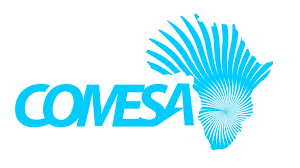By Cecilia Chiluba
Common Market for Eastern and Southern Africa (COMESA) Secretariat says eight of its Member Countries are set to record significant reductions in trade volumes in 2025 due to new reciprocal tariffs instituted by the United States government.
The affected countries include Zambia with 17% tariffs, Democratic Republic of Congo (DRC) 11%, Malawi 17%, Zimbabwe 18%, Libya 31%, Madagascar 47%,
Mauritius 40%, and Tunisia 28%.
Trade statistics reveal that COMESA’s share of exports and imports to the U.S. ranged between 3% to 4% and 4% to 5% respectively during 2019 to 2023.
Estimates suggest that the combination of U.S. tariffs and possible retaliatory tariffs could result in a global GDP decline of 0.43%, adversely affecting demand for COMESA exports, which heavily relies on extra-COMESA trade.
COMESA Director of Trade and Customs, Dr. Christopher Onyango, has since urged the African Union Commission to engage with the U.S. government to discuss the ramifications of the ongoing tariff disputes and to reinforce the need for a rule-based international trading system.
Dr. Onyango, stated that key exports from COMESA, such as Kenyan textile products and Zambian copper, will face inflated prices in the U.S. market, while the prices of essential capital goods from the U.S. will rise.
He said in a statement that the resulting high production costs and consumer prices in the U.S. will likely contract its economy and further depress demand for exports from COMESA countries.
Dr. Onyango noted that the US-Africa trade framework has historically been defined by the African Growth and Opportunity Act (AGOA) enacted in 2000.
“This act granted preferential access at zero tariffs for numerous products from qualifying African countries to the U.S. market, reflecting their relatively lower socio-economic development levels.”
“The new tariffs posed by the U.S. represent a stark departure from AGOA’s intent, which was originally advocated by the U.S. government itself,” Dr. Onyango noted.
He said the uncertainty around AGOA raises concerns that the US tariff policies may result in substantial production cuts and massive job losses across African economies.
“Currently, 35 African nations qualify for AGOA, including 10 COMESA Member States: Comoros, Democratic Republic of Congo, Djibouti, Eswatini, Kenya, Madagascar, Malawi, Mauritius, Rwanda, and Zambia.” he said.
“A policy brief titled “Implications of the U.S. Tariff on COMESA: A Game Theoretic Approach to Trade Negotiations” compiled by the Division of Trade and Customs at the COMESA Secretariat, highlights that while the U.S. is not a primary trading partner for the COMESA region, these increased tariffs are poised to create significant supply and demand shocks across Member States.”
Dr. Onyango explained that in response to this pressing economic threat, the policy brief advocates for the adoption of a variable cooperative game strategy.
“This includes facilitating open negotiations and binding agreements with the EU, China, Japan, India, middle East and other like-minded nations to open trade doors.
He further called for the consolidation of continental and regional economic integration to further amplify COMESA’s voice to boost intra-African trade and investment.



